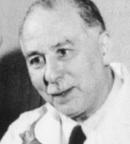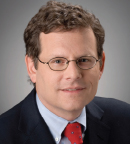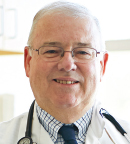Although President Richard Nixon signed the National Cancer Act in 1971, essentially declaring a war on cancer, the genesis of the idea had actually been born 2 years earlier, after the first landing on the moon set off a new era of scientific exploration and sparked a belief that any scientific achievement was possible. There was so much collective enthusiasm for scientific research following the success of the moon landing on July 20, 1969, less than 5 months later, an advertisement titled “Mr. Nixon: You can cure cancer”1 appeared in The Washington Post and The New York Times, imploring the President to increase federal funding for cancer research. “We are so close to a cure for cancer,” Sidney Farber, MD, an early pioneer in the treatment of childhood leukemia, is quoted saying. “We lack only the will and the kind of money and comprehensive planning that went into putting a man on the moon.” The ad then posed the question: “Why don’t we try to conquer cancer by America’s 200th birthday?”
Despite the enormous scientific progress made over the past 4 decades in the understanding of the basic biology of cancer and how to use the immune system to fight the disease, which has led to more personalized and effective therapies for patients, this year, about 1,685,210 people will be diagnosed with cancer, and nearly 600,000 will die of the disease.2
Accelerating Cancer Progress
To accelerate cancer cures, in January, President Barack Obama released a plan for the creation of a White House Task Force on Cancer, the first step in what Vice President Joseph R. Biden, Jr, has called a “moonshot” to eliminate the disease, which comes just 8 months after the death of the Vice President’s son, Beau Biden, from glioblastoma. Chaired by Mr. Biden, the Cancer Moonshot Task Force is focusing on utilizing federal investments, targeted incentives, private sector efforts from industry and philanthropy, and patient-engagement initiatives to achieve in 5 years the gains in research and treatment that might otherwise take a decade or more.
The administration has pledged $1 billion to fund the new National Cancer Moonshot initiative to be spent on several areas of research, including prevention and cancer vaccine development, early detection, immunotherapy, enhanced data sharing, and pediatric cancers. Some of the money will also be used to develop a virtual Oncology Center of Excellence within the U.S. Food and Drug Administration (FDA) to streamline and expedite the way the agency considers applications for products that affect cancer.
“If we can improve the efficiencies and cut through the red tape hindering research progress, such as enhancing the clinical trials infrastructure, increasing enrollment, and speeding the FDA approval process, I think it is possible to achieve the goal of accelerating progress against cancer,” said Julie M. Vose, MD, MBA, FASCO, President of ASCO and the Neumann M. and Mildred E. Harris Professional Chair and Chief of the Oncology/Hematology Division in the Department of Internal Medicine at the University of Nebraska Medical Center. “For progress in basic research, however, that 5-year timeframe is limited, so making advances in that area may take more time.”
Helping the Cancer Moonshot Succeed
Members of the Cancer Moonshot Task Force include heads of the 14 executive branch departments, agencies, and offices, including the National Cancer Institute, the National Institutes of Health, the National Science Foundation, the FDA, the Department of Defense, and the Department of Health and Human Services, who are seeking to “break down silos” among scientists to encourage greater cooperation and the sharing of information. In the weeks since the announcement of the Moonshot initiative, ASCO officials met with the Vice President’s key staff members to provide the Society’s support and offer guidance. The ASCO officials included Clifford A. Hudis, MD, FACP, Chair-Elect of ASCO’s Government Relations Committee; Kevin Fitzpatrick, CEO of CancerLinQ™; Stephen S. Grubbs, MD, Vice President of ASCO’s Clinical Affairs Department; and Robert S. Miller, MD, FACP, FASCO, Vice President of Quality and Guidelines and Medical Director of CancerLinQ.
During the White House meeting, ASCO representatives discussed the need for a comprehensive approach to curing cancer, including issues related to clinical trial enrollment, access to care, information technology and interoperability, and the cancer care delivery system. The ASCO officials also provided information about ASCO’s CancerLinQ big data rapid-learning system and TAPUR, the Society’s molecularly targeted clinical trial for patients with advanced cancer.
“We pledged any assistance the task force needs to make the Moonshot vision a reality to speed advances in cancer prevention, diagnosis, and treatment and that address critically important issues, such as patient access to care, federal funding, information technology, and interoperability of electronic health records,” said Dr. Vose. “Without big data systems like CancerLinQ, which help us learn from every patient with cancer and not just the 3% who enroll in clinical trials, the promise of personalized medicine will be out of reach.”
A Personal Goal
In addition to ASCO leaders, Mr. Biden has met with nearly 200 top cancer physicians, researchers, and philanthropists to learn about the current state of research and treatment and how to push the pace of progress.
“The goal of this Moonshot is to seize the moment,” wrote Mr. Biden in a post on his Medium channel (https://medium.com/@vpotus). “To accelerate our efforts to progress toward a [cancer] cure and to unleash new discoveries and breakthroughs for other deadly diseases…, it’s personal for me. But it’s also personal for nearly every American and millions of people around the world. We all know someone who has had cancer or is fighting to beat it. They’re our family, friends, and coworkers.”
Having a concerted national effort like the cancer Moonshot to identify new ways to prevent, diagnose, and treat cancer and encourage greater scientific collaboration can have a large impact on turning the prospect of more cancer cures into a reality, said Dr. Vose. ■
Disclosure: Dr. Vose reported no potential conflicts of interest.
References
1. National Library of Medicine: Mr. Nixon: You can cure cancer. Citizens Committee for the Conquest of Cancer. Available at https://profiles.nlm.nih.gov/ps/access/TLBBBY.pdf. Accessed February 22, 2016.
2. American Cancer Society: Cancer Facts & Figures 2016. Available at http://www.cancer.org/research/cancerfactsstatistics/cancerfactsfigures2016/. Accessed February 22, 2016.






